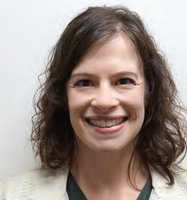Economic Development
LISC draws on our local roots, national breadth, strong partnerships, and comprehensive set of programs, products and services to pursue inclusive economic development at three basic levels:
People First: We use a human-centered and community-centered approach putting the families at the center to understand their needs as a whole - breaking the silo of how we look at Houston’s greatest systemic barriers. Understanding fully, each family may be faced with multiple barriers, such as lack of liquid assets, affordable housing, livable wage, and living in a neighborhood more prone to natural and public-health disasters.
Community-Based: Our methodology is rooted in the evidenced based practice of comprehensive place-based community development – working in partnership with the families and their communities to foster solutions using a two-generational approach. We put the family’s barriers in the context of the community to build more healthy, safe, and resilient communities with access to good schools, healthcare, job opportunities, business development opportunities, healthy food, transportation, and housing.
Seed Investments: LISC’s seed capital for demonstration projects, introduction of evidence-based program models, delivery of technical assistance, and offering of our trademark industry- recognized tools to transfer knowledge has influenced and created the foundation for Houston’s sound affordable housing and workforce development work.
State of Houston
- More than half of Houston's 2.1 million residents are liquid asset poor – they do not have enough savings to live above the poverty level for three months in the absence of income
- An estimated 49 percent of renters and 32 percent of homeowners are cost-burdened - paying more than 30 percent of their income for housing
- Houston experiences more than 9,200 new startups annually - ranked among the nation’s top 10 metros for startup formation. Nearly 35% of Houston-area small businesses with 50 or fewer employees are minority-owned, and the diverse region ranks fifth in the nation for minority entrepreneurship.
- Our small businesses are extremely financially fragile - the median business with more than $10,000 in monthly expenses had only about two weeks of cash on hand; alternatively those with under $10,000 in monthly expenses had one only month.

Our Work
Financial Opportunity Center® (FOC) Network: Launched 2010, LISC's FOC network is a nationally recognized, evidence-based, integrated service delivery model helps individuals increase credit, savings, and income while reducing debt and building long-term wealth and assets. Services bundle of workforce development/career growth, financial coaching, access to financial products, and access to income supports have moved over 8,500 people to financial stability. Read More.
Fostering Business Development: Building equitable local ecosystems for small business through cross-sectoral groups to close small business opportunity gaps and implement data-driven strategies to redress them. We work with various stakeholders—from business development organizations (BDOs) to small-business lenders to community advocates and government representatives— to identify and eliminate disadvantages that have nothing to do with an entrepreneur’s grit and talent and everything to do with unequal access to what makes up a small business ecosystem: the network of capital, services, and supports that every enterprise needs to get on its feet and grow. These ecosystems are critical to fostering opportunity and long-term resiliency for all entrepreneurs who confront entrenched inequities, including people of color, women, immigrants and refugees, and people with lower incomes and wealth. Read More.
Growth Capital, Loans and Training Through Abbot-LISC Initiative: Focus on diversifying the healthcare supply chain by creating the capacity of small business owners providing manufacturing and essential products for healthcare companies to access the resources they need to compete, grow and create jobs. Read More.
